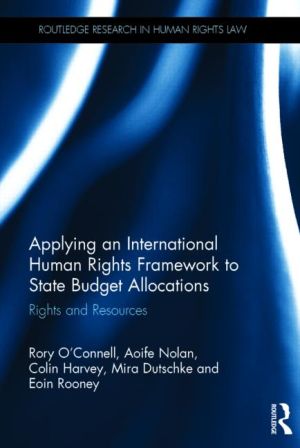
This book looks at how governments' economic and financial decisions impact on socio-economic rights, and considers what human rights obligations governments have in relation to budget allocations. The book analyses the international law obligations binding on signatory states of the International Covenant on Economic, Social and Cultural Rights (ICESCR) in relation to budgetary processes and outlines international experiences and comparative practice in relation to economic and social rights budget analysis and budgeting.
The book sets out an ICESCR based methodology for analysing budget and resource allocations. It offers an innovative approach focusing on the legal obligation imposed by article 2(1) of ICESCR to use 'the maximum of available resources' rather than looking at budgets in terms of equality. This methodology is then applied to case studies of social housing and mental health services in Northern Ireland in order to demonstrate and promote the use of a 'rights-based' approaches at the budget formulation stage. The book critically engages with recent scholarly discussions in human rights law over the precise role of "mainstreaming" initiatives, including their theoretical basis and practical effectiveness. The book will be relevant to a global audience currently considering how to engage in the budget process from a human rights perspective. It will be of interest to students and scholars international human rights law, as well as practitioners, economic and social rights advocacy and lobbying group, and government representatives.